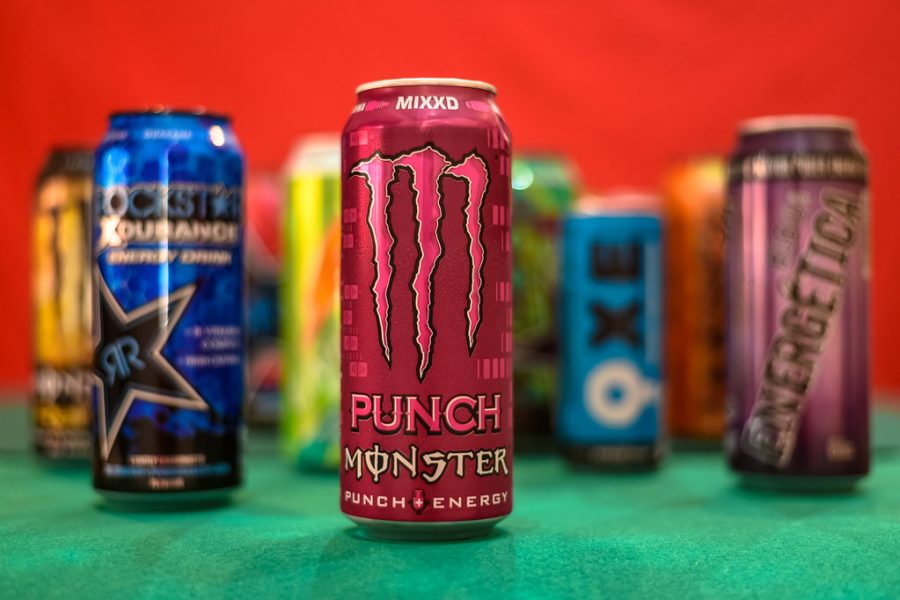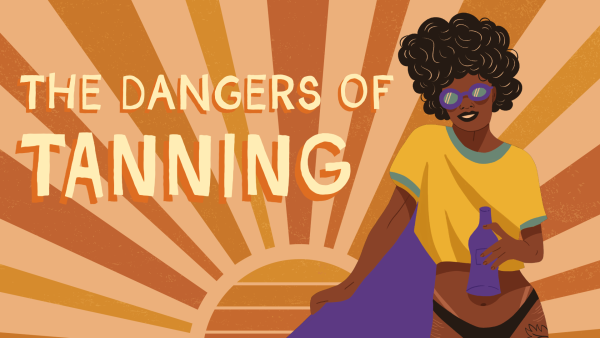Consumers Should Be Less Dependent on Energy Drinks
With the start of school back again, energy drinks are taking the high school world by storm. Long, homework-filled nights lead to a lack of sleep and students are looking for ways to remedy this fatigue and keep their minds fresh, with the simple solution being energy drinks. Coffee took the stage for a while, but with long drive-through lines and high prices, it is not ideal for a school morning. Furthermore, while the average cup of coffee provides 95 milligrams of caffeine, an energy drink typically offers around 200 milligrams of caffeine per can; naturally, people will be attracted to the drink with the higher caffeine amount. Although fine once in a while, energy drinks can be detrimental to the body and are not a healthy solution to this long-term problem.
So what can students do? The obvious solution is to get more sleep, but for many, this is not as easy as it seems. However, even just a few extra minutes every night can make a difference. If going to sleep earlier is not an option, then getting a deeper sleep can be a good substitute and an easy goal to achieve. A few lifestyle changes can provide you with deeper and more restful sleep. For starters, leaving your phone in a different room overnight can create a much calmer sleeping environment. The harsh blue light from phones and other devices convinces your brain it is time to wake up, making it harder to fall asleep. In addition, it is easy to get lost in the world of social media and end up scrolling for hours, resulting in a loss of sleep. Leaving the phone in another room will give you time to relax and make it easier to fall into deep sleep quicker. Consequently, your phone will no longer be a distraction in the morning, making it easier to get up and get ready.
Additionally, making your bed a place just for sleeping is important in working for a deeper sleep. Although it may be comfortable, laying in your bed during the day when you are not sleeping can actually worsen the quality of sleep you get at night. When you lay in your bed for anything other than sleep, your mind begins to associate your bed with other activities unrelated to sleep, which confuses your brain and makes it harder to fall asleep at night. Oftentimes students resort to doing homework in bed, and although it may seem harmless, this is actually making it harder for you to fall asleep. This creates an association between your bed and homework, making it harder for your brain to relax in bed. Leaving your bed solely for sleeping creates a connection in your brain between bed and sleep, making it easier to fall asleep at night.
Although these tricks will improve your quality of sleep and make you feel more well rested, some may still feel reliant on caffeine to feel awake. Working to eliminate or lessen caffeine intake is extremely beneficial. When used too often, caffeine can cause shakiness, increased anxiety, headaches, dizziness, dehydration, and cardiovascular-related problems. These drinks are so problematic, as they are advertised as boosting health and fitness. Buyers assume they are prioritizing their health when choosing an energy drink over a coffee when it is actually the opposite. Companies advertise all different flavors and low-calorie options, failing to share the potential negative side effects. Limiting the energy drinks to every once in a while will help you sleep better at night and decrease your chance of possible health risks.

Annie Cameron, class of 2023, is the Lifestyle Editor for The Searchlight. At the high school, she runs cross country and track. Outside of school, she...



